The world of music recently paused to mourn the passing of Danny Thompson, the legendary acoustic bass player whose extraordinary career spanned over six decades and left an indelible mark on an astonishing array of genres. Thompson, a founding member of the influential British folk-rock band Pentangle, died peacefully on September 23 at his home in Rickmansworth, England, at the age of 86. His passing was announced on his official social media accounts, sparking a wave of tributes from across the musical landscape.
Thompson was not merely a sideman; he was a central force, a musical innovator whose intricate, free-form style on the standup bass crafted lines as inventive and compelling as any lead guitar solo. His unique approach transcended the traditional role of a bassist, elevating the instrument to a lyrical voice shaped by his deep understanding of blues and jazz, an influence that was evident in every note he played. His body of work is considered unparalleled in its quality and in the sheer diversity of artists he collaborated with.
As we reflect on his remarkable journey, it becomes clear that Danny Thompson’s contributions stretched far beyond the confines of any single genre. He defied musical conventions, blended disparate styles with seamless grace, and consistently served the song, enriching the lives and art of every person he encountered, both on and off stage. This article will explore the pivotal moments and defining characteristics of a truly iconic musician, whose absence will be sorely felt by all who admired his genius.

1. **Early Life and the Genesis of a Virtuoso**Daniel Henry Edward Thompson was born on April 4, 1939, in Teignmouth, on the southwestern coast of England. His early years were marked by the profound loss of his father, who was killed in submarine action during World War II. Following this tragedy, his mother relocated the family to London when he was just six years old, settling in Battersea, a working-class area on the east side of the River Thames.
Growing up in this vibrant urban environment, young Thompson quickly revealed a prodigious talent and an insatiable drive to excel. He was skilled at soccer, even playing as a junior for Chelsea Football Club, demonstrating an early aptitude for disciplined practice and competitive spirit. However, it was music that truly captured his imagination and would ultimately become his life’s passion.
His musical journey began remarkably early; at the tender age of 13, he crafted his first bass out of wood from a tea chest, strung with stolen piano wire. This inventive spirit foreshadowed a career defined by innovation and a relentless pursuit of musical excellence. By the age of 16, Thompson had already played his first professional gig at a club in Soho, marking the beginning of a lifelong commitment to his craft.
His development as a musician also included a stint of national service, which took him to Penang, Malaysia, for two years. During this period, he played trombone for the army band, an experience that would unexpectedly influence his later double bass playing, contributing to the melodic and counter-melodic approach that became his signature style. This early exposure to various instruments and musical contexts laid a crucial foundation for his future genre-bending career.
Read more about: Prince Rogers Nelson: A Comprehensive Retrospective on the Life and Musical Legacy of a Global Icon

2. **The Instrument and the Philosophy: Victoria and Serving the Song**Central to Danny Thompson’s identity as a musician was his cherished 1860 Gand & Frères double bass, which he affectionately named Victoria. He acquired this beloved companion at the remarkably young age of 15 for a mere £5, and it would remain by his side throughout his extensive career. As Kate Bush eloquently put it, “You never just worked with Danny. You also worked with his double bass he called Victoria. The two of them were joined at the hip, and together they were the most fascinating storytellers — earthy and of the wild.”
Thompson’s dedication to his craft was legendary. He famously kept a sign above his door that simply read ‘PRACTICE,’ a testament to his unwavering commitment to honing his skills. This rigorous self-discipline was a driving force, as he once stated, “I always wanted to be the best at whatever I did. When I first got my bass when I was 16, I was living on my own, and I put up a sign above my door which said ‘PRACTICE.’” This ethos of continuous improvement and mastery defined his approach to music.
His musical philosophy was characterized by an open-mindedness that defied categorization. In a 2010 interview, Thompson explained, “I never say I’m not going to play with someone because they’re working in a different kind of music to me. I’ll always have a play, and it’s that which has led into all kinds of different things.” He was never concerned with genre labels, believing simply, “It was music, you know? Plain and simple. The only thing I cared about was if I liked it or not, and if I liked it, then I was going to play it. Simple as that.”
This unpretentious yet profound approach allowed him to seamlessly blend jazz, blues, folk, and rock, making his bass playing not just a rhythmic foundation but a melodic, narrative voice that profoundly served the song. His ability to adapt and contribute meaningfully to wildly diverse musical contexts became a hallmark of his unparalleled career, earning him the admiration and love of countless collaborators and fans.
Read more about: Hollywood Bids Farewell: Remembering 12 Unforgettable Legends of Stage, Screen, and Genre Films Who Left Us in 2025
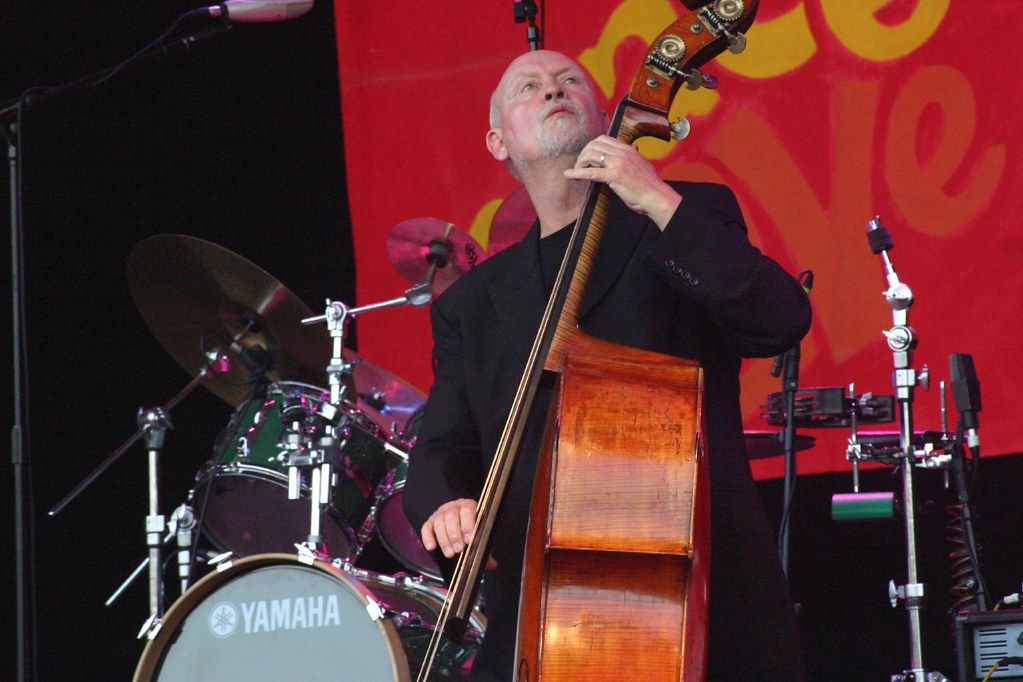
3. **A Foundation in Blues: Alexis Korner’s Blues Incorporated**Danny Thompson’s ascent in the British music scene began significantly in the mid-1960s, particularly through his involvement with Alexis Korner’s Blues Incorporated. From 1964 to 1967, Thompson was a pivotal member of this influential British blues artist’s group, which served as a veritable talent factory for emerging musicians who would later achieve superstardom.
Blues Incorporated was a crucible of talent, nurturing future luminaries such as drummers Ginger Baker, known for his work with Cream and Blind Faith, and Charlie Watts, who would become an iconic figure with the Rolling Stones. Thompson’s tenure in this band placed him at the heart of Britain’s burgeoning blues revival, allowing him to hone his skills alongside some of the most dynamic musicians of the era.
During this period, Thompson also led his own trio, which notably included the guitarist John McLaughlin, who would later achieve global recognition as a jazz fusion pioneer. This early exposure to complex improvisational structures and the raw energy of blues music profoundly shaped Thompson’s distinctive playing style, informing the tasteful and fluid acoustic-bass lines that would become his hallmark.
His time with Alexis Korner provided a solid foundation, allowing him to develop the intricate, free-form bass lines that transcended mere rhythm. It was here that he cultivated the depth and drama that he would bring to countless recordings and live performances, establishing his reputation as a bassist capable of elevating any musical setting with his unique blend of blues and jazz sensibilities.

4. **The Birth of Pentangle: A Folk-Rock Revolution**In 1967, Danny Thompson became a founding member of what would quickly become one of the most influential British folk-rock groups of its time: Pentangle. Formed in London, the quintet was something of a folk supergroup, bringing together an extraordinary collection of talent that promised to push the boundaries of traditional folk music.
Thompson joined forces with the revered guitar virtuosos John Renbourn and Bert Jansch, who were already considered two of the finest folk guitarists in the U.K. The lineup was completed by the captivating lead vocalist Jacqui McShee and the versatile drummer/percussionist Terry Cox, also an alumnus of Alexis Korner’s Blues Incorporated. This formidable combination of musicians brought together diverse backgrounds and styles.
Pentangle, alongside contemporaries like Fairport Convention, embarked on a mission to revolutionize British folk music. They courageously vaulted beyond the pastoral traditions of the genre, integrating elements of jazz, rock, and even psychedelia into their sound. This eclectic approach created a truly unique musical tapestry that was both rooted in tradition and boldly forward-thinking.
Their formation marked a pivotal moment in British music history, signaling a new era where traditional melodies could be infused with complex improvisational structures and contemporary energy. Thompson’s deep-toned, warm bass playing served as the backbone for this innovative sound, providing both rhythmic stability and melodic improvisation that allowed the group to explore uncharted musical territory with remarkable fluidity and artistry.
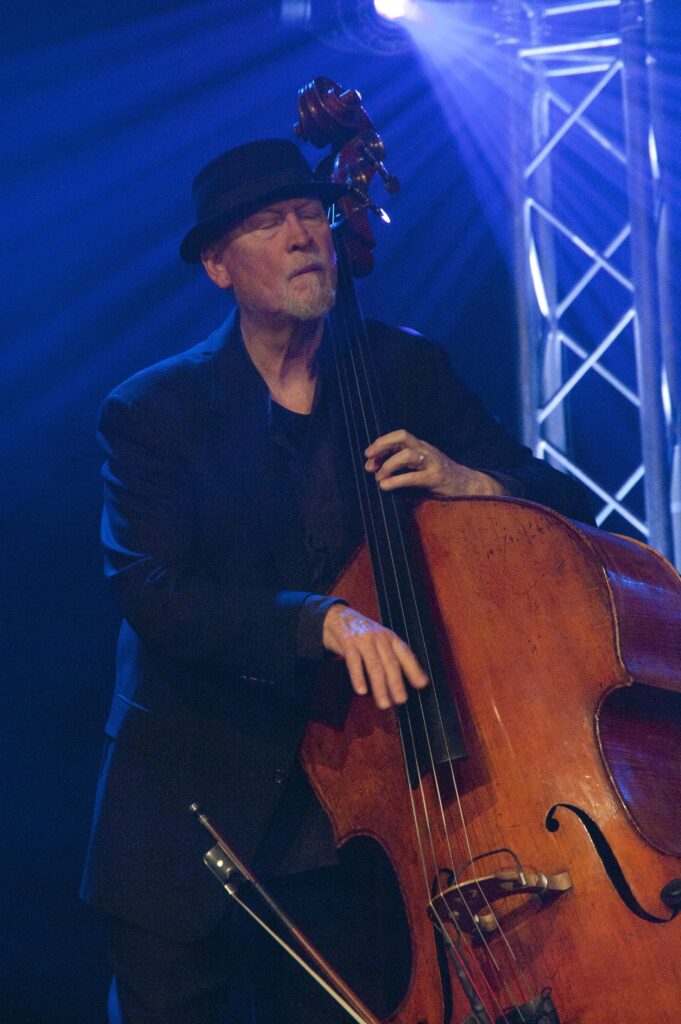
5. **Pentangle’s Ascendance and Unique Sound**Despite the inherent idiosyncrasies of their genre-bending sound, Pentangle achieved significant critical and commercial success almost immediately. The group sold out the prestigious Royal Festival Hall in London in May 1967, a testament to their immediate impact and burgeoning popularity among a diverse audience eager for something new and exciting in music.
Their debut album, simply titled “The Pentangle” and released in 1968, quickly climbed to No. 21 on the British charts, signaling their arrival as a major force. This success was swiftly followed by “Basket of Light” in 1969, which soared to an impressive No. 5, firmly cementing their place in the upper echelons of British music. The band also notched two Top 50 singles on the British charts: “Once I Had a Sweetheart” (No. 46 in 1969) and “Light Flight” (No. 43 the following year).
Critics of the time often struggled to pigeonhole the group’s eclectic sound, which blended elements of jazz, blues, country, classical, and rock oldies, sometimes all within the same song. The band members themselves seemed unfazed by such attempts at categorization. As Mr. Thompson stated in a 1971 interview with New Musical Express, “If someone asked me, ‘What’s your kind of music?’ I’d say, ‘I have no idea.’” This candid admission highlighted their commitment to musical exploration over strict genre adherence.
However, the constant pressure to record and perform took its toll. The original members of Pentangle eventually split in 1973, with Thompson noting in a 1991 interview that the group “didn’t tell the business, ‘Hold on, you’re destroying the thing that brings in the money.’ It all became very tired, and I still had a raging enthusiasm to play.” This departure allowed him to channel his enduring passion into new, diverse collaborations.
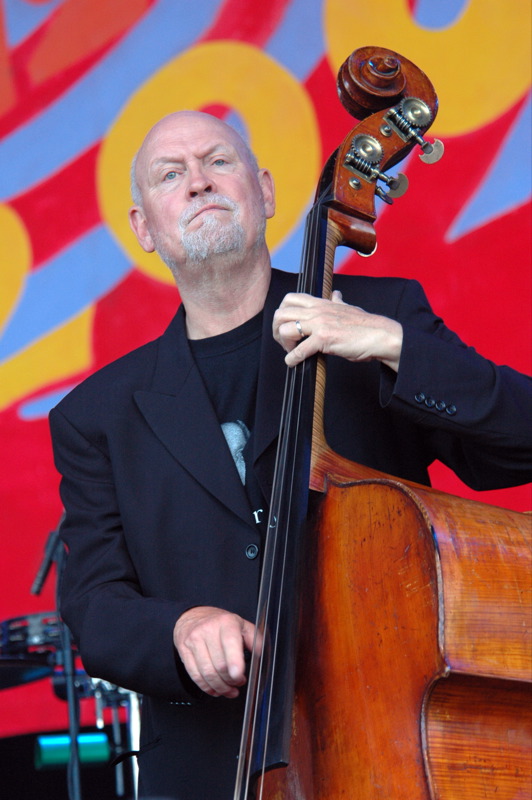
6. **Early Notable Collaborations: Touring with Roy Orbison and The Beatles**One of the most fascinating episodes in Danny Thompson’s early career highlights his remarkable versatility and willingness to embrace diverse musical contexts. In 1963, shortly after his return to the UK from national service, Thompson embarked on a tour with the legendary American singer Roy Orbison. This tour provided a significant platform for the young bassist and introduced him to a wider audience.
What makes this collaboration particularly notable is that The Beatles, then just starting out and on the cusp of global superstardom, were the support act for Orbison’s tour. This placed Thompson directly at a pivotal moment in music history, performing alongside future legends before they achieved their iconic status. It was a rare and exciting opportunity that broadened his experience considerably.
During this tour, Thompson made a rare excursion into playing the electric bass, a departure from his preferred acoustic double bass. This showcases his adaptability and his early embrace of different instruments and styles, driven by the needs of the performance. While his heart lay with the acoustic instrument, this experience demonstrated his capability to navigate various musical demands.
His involvement in such high-profile tours at an early stage of his career not only helped establish important musical connections but also solidified his reputation as a reliable and exceptionally talented musician, capable of holding his own alongside established stars. It was a formative experience that underscored his readiness for a career defined by extensive and impactful collaborations.

7. **Forging a Partnership: The John Martyn Years**Danny Thompson began one of his most significant and enduring musical partnerships when he collaborated with the folk-jazz singer and guitarist John Martyn. This collaboration formally commenced when Thompson played on Martyn’s seminal 1971 album, “Bless the Weather,” marking the start of a relationship that would profoundly shape both musicians’ careers and influence a generation of artists.
Their partnership quickly became renowned for its formidable musical synergy. Thompson’s deeply melodic and intuitively responsive bass lines provided the perfect counterpoint to Martyn’s intricate guitar work and soulful vocals. Together, they forged a unique sound that resonated deeply within the British folk and jazz scenes, helping to define a distinctive strain of folk music that percolated in the UK throughout the early to mid-1970s.
Martyn himself recognized the immense contribution Thompson made to his music and development. He famously remarked, “Of all the musicians I’ve come into contact with, Danny has taught me the most… particularly about style and jazz technique.” This powerful testament speaks volumes about Thompson’s role not just as a player, but as a mentor and an artistic inspiration to his collaborators.
Beyond the studio, their live performances were legendary, characterized by an electric energy and a deep, almost telepathic understanding between the two musicians. While also known for a reputation for wild living, their musical output remained consistently innovative and impactful, solidifying Thompson’s status as the indispensable bass foil to one of British music’s most revered figures. This era underscored his ability to form profound, long-lasting creative bonds.
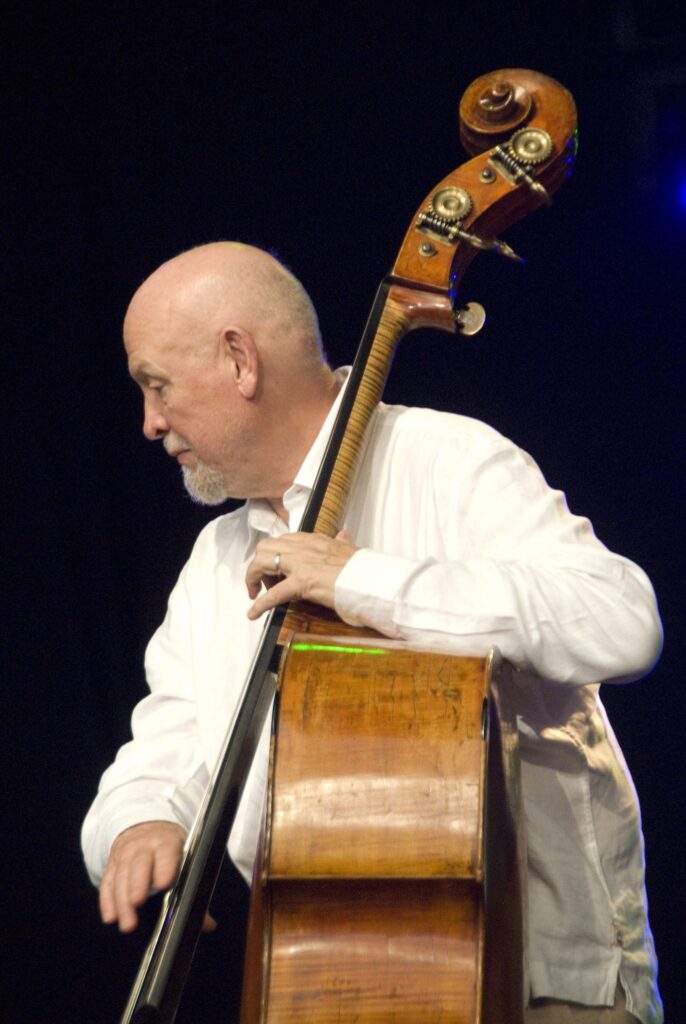
8. **The Indispensable Session Musician: A Panorama of Collaborations**Following his departure from Pentangle, Danny Thompson embarked on an astonishingly prolific career as a session musician, establishing himself as one of the most in-demand and versatile acoustic bass players of his generation. His innate ability to adapt his deeply melodic and rhythmically inventive style to virtually any musical context made him a coveted collaborator for artists spanning folk, rock, jazz, and beyond. This period solidified his reputation as an artist whose contributions elevated every project he touched.
The breadth of his work is genuinely remarkable. He lent his distinctive sound to recordings by iconic figures such as Donovan, Marianne Faithfull, The Incredible String Band, and June Tabor, weaving his intricate bass lines into their diverse narratives. Whether providing a subtle foundation or a prominent melodic counterpoint, Thompson consistently demonstrated a profound understanding of how to ‘serve the song,’ a personal mantra that guided his entire career.
Indeed, his management’s statement aptly summarized this phase of his career: “A musician who was both beloved and admired by everybody he worked with, his body of work is unparalleled in its quality and also in the incredibly varied number of musicians he worked with.” This versatility was not merely a technical skill but a reflection of his fundamental philosophy that music itself, regardless of genre, was the only true arbiter of worth.
His open-mindedness, a hallmark of his artistic integrity, allowed him to seamlessly transition between disparate musical worlds, enriching each with his unique voice. This era laid the groundwork for many of his most celebrated partnerships, demonstrating that his musical curiosity was as boundless as his talent.

9. **The Poetic Depth: Collaborations with Nick Drake and Tim Buckley**Among Danny Thompson’s most enduring and haunting contributions are his collaborations with the enigmatic singer-songwriters Nick Drake and Tim Buckley, artists whose profound lyrical and musical expressions found a perfect foil in Thompson’s sensitive bass work. His playing on these seminal albums is often cited as a cornerstone of their distinct atmospheric qualities, providing both grounding and ethereal movement.
On Nick Drake’s acclaimed 1969 debut album, “Five Leaves Left,” Thompson’s bass lines became an integral part of the album’s melancholic beauty. His suitably flowing bass line on the indelible track “River Man” exemplifies his mastery, adding a layer of sophisticated depth that allowed Drake’s intricate guitar and hushed vocals to truly soar. It was a partnership born of subtle intuition, where the bass did not merely keep time but conversed with the melody.
Similarly, Thompson contributed to Tim Buckley’s “Dream Letter: Live in London 1968,” showcasing his ability to enhance live performances with his improvisational flair. His presence brought a dynamic, improvisational edge to Buckley’s adventurous folk-jazz fusion, demonstrating a profound telepathy with the artist. The emotional resonance he brought to these recordings has been praised by critics and fans alike, cementing his status as a musician capable of extracting and amplifying the inherent poetry of a song.
These collaborations underscore Thompson’s unique gift for empathy in his playing, allowing him to weave himself so completely into the fabric of a composition that his contribution felt both indispensable and organic. He understood the delicate balance between support and expression, always allowing the artist’s vision to shine while imbuing the music with his own distinctive depth and drama.
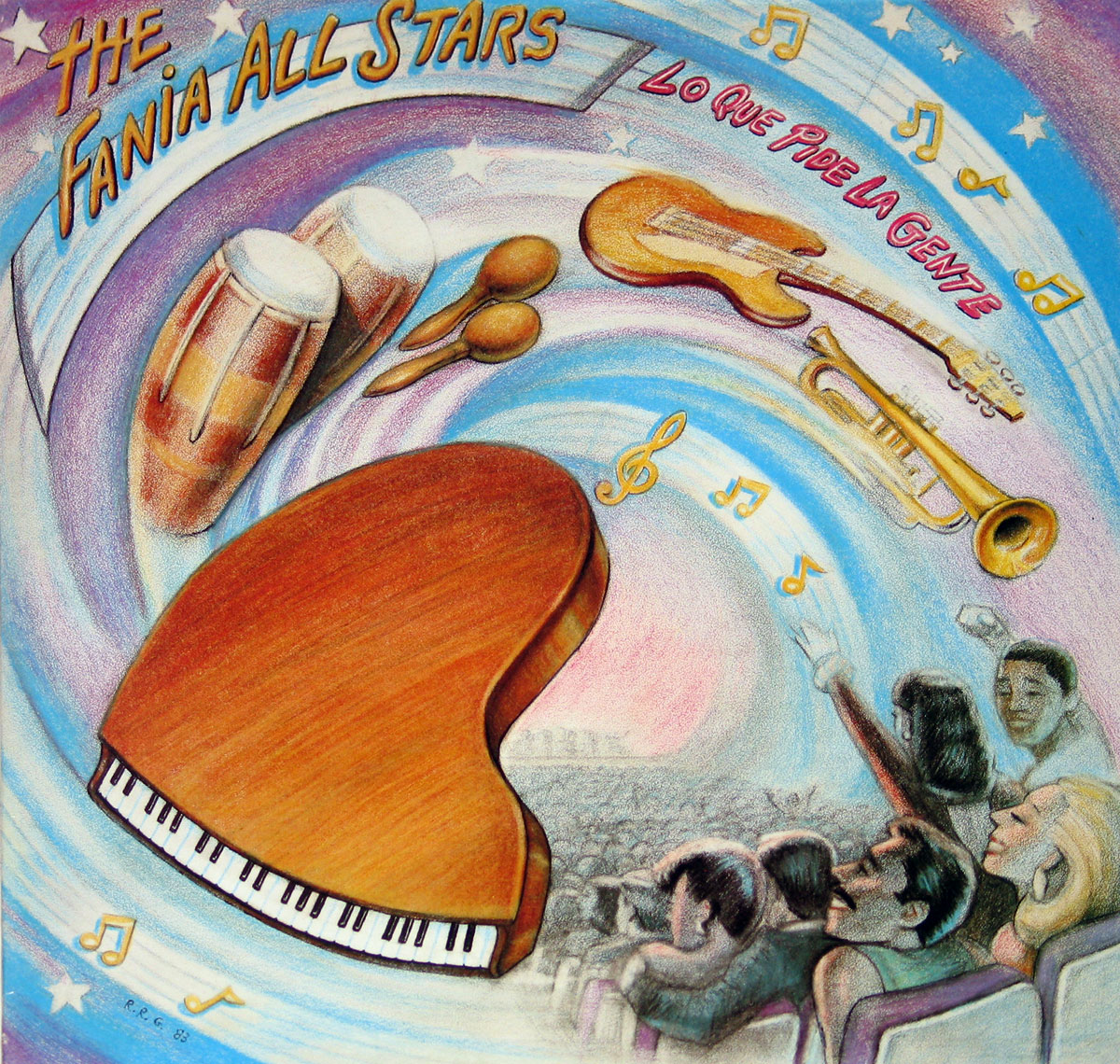
10. **Shaping the Sound of Legends: From Rock to Pop**Danny Thompson’s expansive reach extended far beyond the folk and jazz circles with which he was most commonly associated, encompassing collaborations with some of rock and pop’s biggest names. His ability to seamlessly integrate his acoustic bass into electric and amplified settings proved his exceptional adaptability, showcasing a versatility that few bassists could rival. These high-profile recordings further cemented his reputation as a first-call musician.
He made notable contributions to Rod Stewart’s chart-topping 1971 album “Every Picture Tells a Story,” an album that defined a generation’s sound. Thompson’s subtle yet impactful bass work provided the essential groove, demonstrating his understanding of how to serve even the most commercially successful rock compositions with his signature warmth and precision. His playing provided a unique texture, enriching the album’s diverse stylistic palette.
Similarly, his distinctive sound graced Eric Clapton’s iconic 1974 album “461 Ocean Boulevard,” a pivotal record in Clapton’s career. Thompson’s acoustic bass contributed to the album’s laid-back, blues-rock feel, providing a rich, organic foundation that stood apart from purely electric instrumentation. These engagements highlighted his remarkable capacity to enhance established artists’ work, often bringing an unexpected depth through his acoustic approach.
Later in his career, Thompson made forays into the burgeoning pop landscape of the 1990s, recording with critically acclaimed acts such as Everything but the Girl and Johnny Hates Jazz. He also lent his talents to artists like ABC, Peter Gabriel, The The, and David Sylvian, consistently demonstrating his willingness to explore new musical territories. This adaptability exemplified his unwavering principle: “It was music, you know? Plain and simple. The only thing I cared about was if I liked it or not, and if I liked it, then I was going to play it. Simple as that.”
Read more about: 14 Unlikely Automotive Heroes: The Cars That Shocked Everyone and Redefined Success
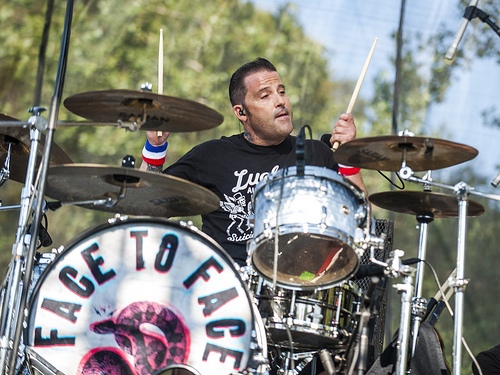
11. **The Kate Bush Connection and Meticulous Approaches**One of Danny Thompson’s most celebrated and unique partnerships was with the avant-garde pop icon Kate Bush, a collaboration that produced some of his most distinctive bass performances. Their work together exemplifies Thompson’s singular ability to bring drama and depth to even the most idiosyncratic compositions, illustrating his profound musical empathy.
Thompson notably contributed to Bush’s critically acclaimed albums “The Dreaming” (1982) and “Hounds of Love” (1985). On tracks such as “Pull Out the Pin” from “The Dreaming” and “Watching You Without Me” from “Hounds of Love,” his intricate bass lines provided a vital undercurrent, often serving as a melodic counterpoint that added a rich, earthy texture to Bush’s often experimental soundscapes. His presence helped ground the atmospheric and complex arrangements.
Kate Bush herself eloquently captured the essence of their creative bond, noting, “You never just worked with Danny. You also worked with his double bass he called Victoria. The two of them were joined at the hip, and together they were the most fascinating storytellers — earthy and of the wild.” This tribute highlights the almost symbiotic relationship Thompson had with his instrument and the narrative quality he brought to his playing.
Beyond the studio, Thompson was known for his meticulous approach to recording. He often preferred to play against finished instrumentals, allowing him to precisely sculpt his bass performances to achieve the perfect tonal balance and emotional resonance within the existing musical framework. This dedication to craft ensured that his contributions were not only technically brilliant but also perfectly integrated, making him an invaluable asset to artists like Bush who sought meticulous sonic detail.

12. **Solo Ventures and the BBC Transatlantic Sessions**While Danny Thompson was primarily celebrated for his extensive collaborative work, he also carved out significant space for his own artistic vision through solo albums and pivotal roles in esteemed broadcast productions. These endeavors allowed him to showcase his compositional talents and his interpretations of traditional arrangements, revealing another dimension of his profound musicality.
Between 1987 and 2012, Thompson released six solo albums, beginning with “Whatever Next.” These recordings served as a testament to his individual artistry, featuring his own compositions alongside imaginative takes on traditional pieces. They offered listeners a chance to experience Thompson’s bass not as a supportive element, but as the central, lyrical voice, demonstrating his profound understanding of melody and structure.
In addition to his solo output, Thompson played a crucial role in the BBC performance series “Transatlantic Sessions.” From 1995 to 2013, he was an integral part of the house band, providing the rhythmic and melodic backbone for a diverse array of folk, roots, and country artists from both sides of the Atlantic. This long-running engagement showcased his unparalleled ability to improvise and collaborate with a constantly revolving cast of musicians, further cementing his reputation as a master of ensemble playing.
These ventures underscore Thompson’s multifaceted talent—not just as an accompanist, but as a composer, arranger, and bandleader in his own right. His solo work and contributions to the “Transatlantic Sessions” provided a platform for his unique voice to shine independently, affirming his status as a complete musician whose influence extended beyond mere session contributions.

13. **Personal Battles and Enduring Dedication**Beyond his celebrated musical achievements, Danny Thompson’s life was also marked by personal challenges and triumphs that underscored his remarkable resilience and unwavering dedication. His journey included a profound battle with substance abuse, which he confronted with the same competitive spirit he applied to his music. In 1978, he famously overcame a long history of substance abuse, a pivotal personal milestone.
Thompson once candidly reflected on this aspect of his life, stating, “When I drank, I was going to be the best drinker in the bar, or take the most drugs or whatever. When I did give up the drink I was going to be the best at that.” This revealing quote speaks volumes about his character, illustrating a fierce commitment to excellence, whether in pursuit of his craft or in the face of personal adversity. His recovery was as much a testament to his willpower as any musical accolade.
Further demonstrating his personal journey, Thompson converted to Islam in 1990, a significant spiritual milestone that became another foundational aspect of his later life. These personal experiences undoubtedly informed the depth and gravitas of his playing, adding layers of wisdom and introspection to his already profound musical expression.
Even into his eighties, Thompson maintained an active performing schedule, a testament to his enduring passion for music. His final notable appearance occurred earlier this year at London’s Royal Albert Hall for Richard Thompson’s 75th birthday celebration, where he once again graced the stage with his beloved Victoria. Danny Thompson is survived by his wife, Sylvia, and his son, Dan Jr., leaving behind not only a colossal musical legacy but also a testament to a life lived with unwavering dedication and personal growth.
Read more about: Lights, Camera, Silence: 12 Famous Duos Who Said ‘Cut!’ to Friendship After Filming Wrapped

14. **A Virtuoso’s Legacy: Awards, Tributes, and Lasting Influence**Danny Thompson’s unparalleled career was rightly acknowledged with numerous accolades and heartfelt tributes from across the music world, solidifying his status as a true virtuoso and an enduring icon. His impact transcended individual recordings, shaping the very landscape of folk, jazz, and popular music for generations of musicians and listeners.
In 2007, his lifetime contributions were honored with the prestigious BBC Radio 2 Folk Awards Lifetime Achievement honor, a testament to his profound and sustained influence on the folk genre. This was followed in 2015 by the Chris Squire Virtuoso Award at the Progressive Music Awards, which recognized his innovative and influential musical talent. This award, presented by his good friend, actor Harry Shearer, highlighted his universal appeal and technical brilliance.
Tributes flowed universally upon the news of his passing, underscoring the deep affection and admiration he commanded. He was remembered as “a force of nature,” a player “who served the song and who enriched the lives of every single person he met.” Many fans echoed sentiments such as, “What an absolute icon,” and “He changed my life for the better,” while others celebrated that “His bass lines shall live on.” These heartfelt messages speak to the personal connection he forged through his music.
Thompson’s legacy is defined by his singular ability to elevate the double bass from a mere rhythm instrument to a voice of profound lyrical expression, blending jazz, folk, and popular music in innovative ways. His open-minded approach, refusal to be confined by genre, and relentless pursuit of excellence created a body of work that is not only vast in its scope but consistently exceptional in its quality, ensuring that the warm, resonant tones of Victoria, guided by Danny Thompson’s masterful hands, will continue to inspire for years to come.



